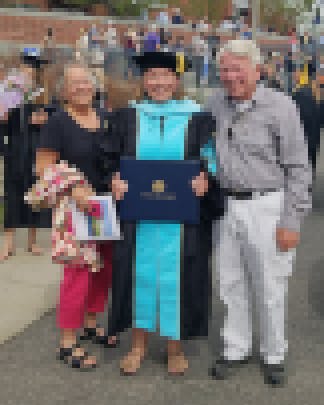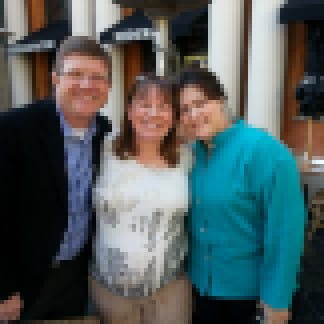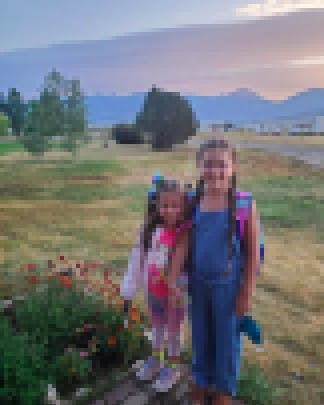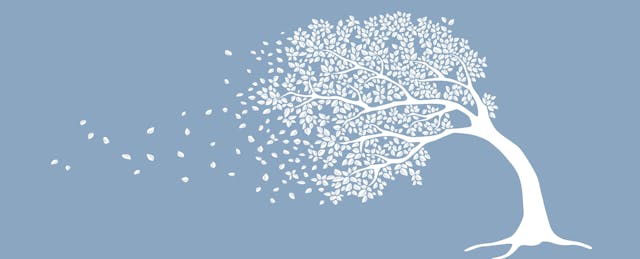Higher education is heading into the eye of the tornado. Many of us are planning for academic continuity while the debris of the COVID-19 pandemic is swirling around us. There are regulatory matters to consider. The health and safety of our colleagues and our students to put at the forefront. A long-overdue spotlight on equity, diversity and inclusion shining on all of our operations. It can all feel overwhelming, like we’re all going to get swept away in the storm.
Now, more than ever, as educators and institutions, we need to recenter ourselves on our why—not on how we get through this or when this storm will be over. In education, we are really good at focusing on what and how and when, at solving the problems before us. But we tend to get lost on the why because it is personal and squishy—there’s no empirical evidence you can cite, no scholarship to drive your formulation.
In 2008, through some fabulous colleagues, I discovered TED Talks, which led me to leadership guru Simon Sinek. His earliest TED Talk inspired me to start thinking about my why. Why am I in education? Why did I spend nearly 13 percent (yes, I calculated it) of my life working on a doctorate? Why do I keep going when seemingly faced with brick wall after brick wall? That’s what I’m going to share with you, in hopes of helping you stay firmly planted in your why, to help you weather the storm and all of us come out the other side stronger.
My why is multifaceted. It has roots, but they grow in wild directions as my life changes. I invite you to come with me on the journey my why has taken, as it has grown from seed to sapling to sturdy tree.
My why begins before I had ever heard of Sinek. In 2008, I was recruited to run a grant with the purpose of connecting adult learners with data to inform their college choices so they didn’t need to depend on marketing hype from lead generation websites. In creating that website, I recognized my passion for education lies in missed opportunities I saw in my own life.
While I was growing up, my dad had a good job as a radiology tech and then hospital administrator. He achieved this with a technical degree and lots of continuing education. But he always wanted to pursue a degree in computer science—he loved technology. We even had one of those Apple II computers in the living room and then an upgrade to a PC that could connect to the internet through the lovely screech—beeedddooooo boop—of AOL.
However, at that time, in the late 1980s and early 1990s, his options were limited to exiting the workforce to pursue his dream of a bachelor’s of computer science or taking night or weekend classes and missing out on time spent being a dad. He tried the latter option, but in the end, being a dad and a husband, a provider for our family, won. It’s not that he didn’t have the talent or the drive, he just chose to focus on his family. If online education had been around then, he might have had a different story. Helping learners achieve their educational dreams without sacrificing their family life is my passion. It is the root of my why.

When I began exploring my why, an additional inspiration from my childhood bubbled to the top. My motivation for continuing my education beyond my bachelor’s comes from the inspiration of two women. First, as an impressionable middle schooler, I watched my mom pursue her goal of a master’s in the language she loves, Spanish, and the Latin American culture she inculcates and admires. She attended her classes and was a great graduate teaching assistant, teaching introductory classes to a broad array of students. Back in the days when tests were mimeographed (some of you also remember the smell of that purple ink!) and there were no adaptive engines to score them, I was the grader. I saw the camaraderie my mom had with the other students in her program. I witnessed the difference it made when she would go translate through the Red Cross for a Hispanic family who spoke no English. Thus another branch in the roots of my why: to be like my mom and to provide opportunities for other young girls to have that kind of mom, one who pursues her educational goals. After all, research has shown that learners whose mothers have earned a college credential are more likely to attain one themselves (Atwell, et al, 2007; Yakaboski, 2010).
The second woman who contributed to my passion for continued education is my Tootie, my “other mother.” I witnessed Tootie take her enthusiasm for educating people around the world about disease prevention and roll it into a doctorate in education. (I’ll interrupt this story for a brief PSA: Wash your hands, people! It’s the easiest way to stop the spread of disease!) Tootie graduated and was hooded the day her son and I attended our senior prom. She raced back from her hooding ceremony to take pictures and wish us well as we went to the big dance. When following a tenure-track route didn’t work out, and her life situation didn’t allow her to pursue more practical work in public health after her postdoc at the Centers for Disease Control, Tootie’s strong educational background and drive to succeed allowed her to pivot. She built a health care screening company to help medical and wellness practices ensure a competent and safe workforce. From the example of her life, my why stems into providing the educational grounding to allow our learners to continue to develop and pivot throughout their time in the workforce.

My why grew its trunk in the years my daughters were born. I am here to help improve higher education so when these two tiny humans embark on their own lifelong learning journey, they have options that will help them integrate their thirst for knowledge (and as my Alexa will confirm, they are FULL of questions!) with their lives and work. Notice I didn’t say balance, or blend. Part of my why is helping these little ladies, and all their contemporaries, realize that learning is not separate from the rest of our lives but as normal and necessary as brushing your teeth (though, Alexa will also confirm they would not brush if she did not remind them day and night!).

The final component of my why has blossomed more than I could have imagined since I returned to an institution from the nonprofit world. My students are my why. There’s Joseph, who balanced building the prior learning assessment portfolio for his last class before his capstone with end-of-deployment awards, SITREPs and other duties related to the changing of the guard in Iraq. There’s Chyanne, who worked as an EMT while pursuing her emergency management degree and then parlayed that into a new position in emergency management for her local hospital. And countless others who are working to keep us safe and improve our lives.
The individual lives I change, and the ripple effects down to their future students and the troops they command and the people they save from the ever-increasing wildfires—those are the branches and leaves on the tree of my why. They keep me reaching, through regulatory and technological challenges, to find the best way to achieve their learning goals. My why is helping learners integrate learning throughout their lives in ways that meet their educational dreams and provide resilience in their careers without sacrificing the other elements of their lives.
Thank you for investigating my why with me. But now the tables are going to turn, and I’m going to ask YOU to think about your why. Why did you take that first job in higher education? Why did you pursue your degrees? Why do you get up every morning and commute or log on to your campus? When the committee meetings drag on, why do you stay motivated?
Now is the time to break out those crayons, pens, pencils or markers to craft your why statement. Reflect on your lived experiences, how they contribute to that why. Then WRITE IT DOWN! I cannot stress that enough! So when the whats and the hows have taken over your day, you can glance down and remember why you’re here in the first place.
What's keeping you rooted in higher education? Share your answer on Twitter with the hashtag #MyWhyEdu and tag Morrison too: @calimorrison.


